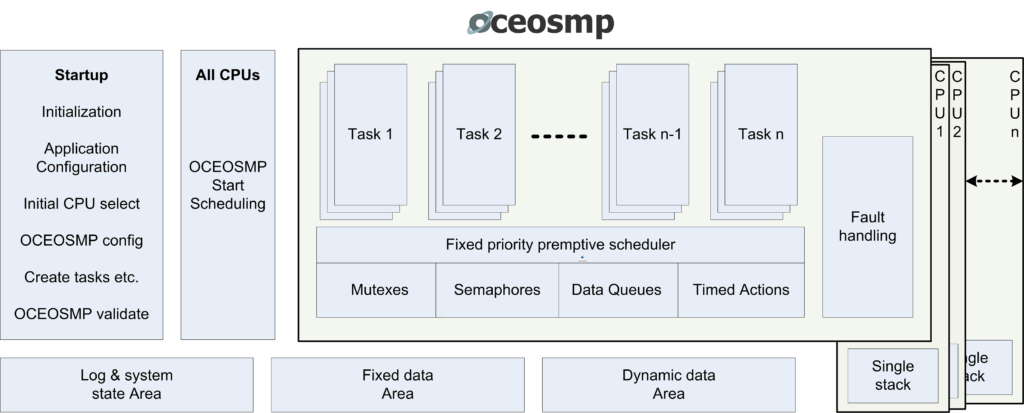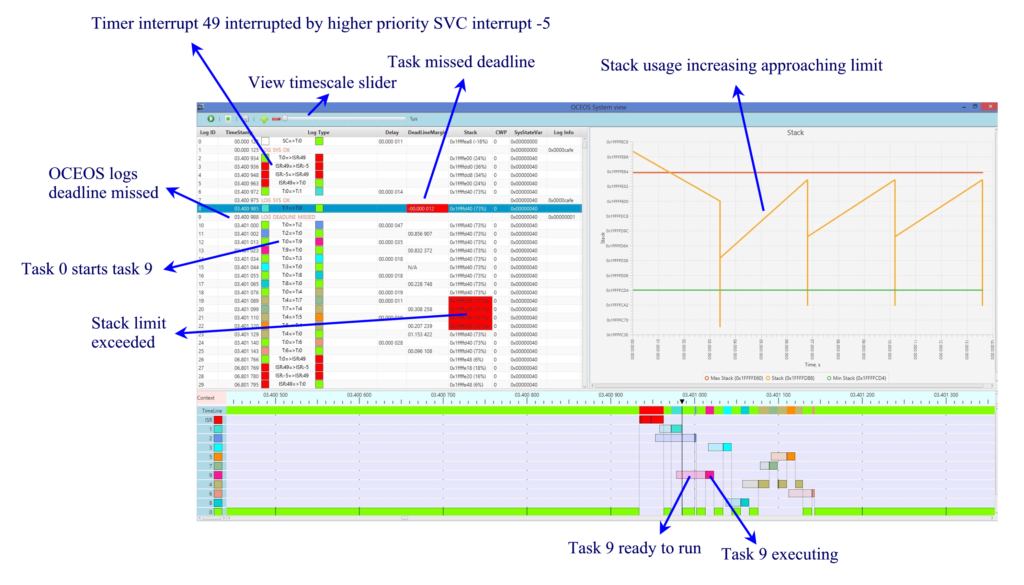
OCEOS is a real-time pre-emptive fixed priority operating system that can be used in applications that require European Space Agency ECSS Category B or ISO 26262 standards. It has a small memory footprint and requires only one system stack per CPU rather than a stack for each task. It provides support for precisely timed data outputs independent of task scheduling. OCEOS supports applications running on RISC-V, ARM, & SPARC based hardware. In a multicore environment OCEOS can run in parallel with other lower reliability operating systems. Support for AI processing using OpenVX and OpenCL is on the roadmap. OCEOS features include:
- Fixed priority pre-emptive scheduling
- Based on Stack Resource Policy – unbounded priority inversion and chained blocking cannot occur. Deadlocks impossible on single core and warning provided on multicore
- Single stack per CPU rather than separate stack for each task
- Small code footprint ( <10 kB for core functionality)
- Mutex (standard & read/write), counting semaphore, and data queue support
- High precision timed actions independent of scheduling (data output and task start)
- Supports SPARC, ARM, and RISC-V processor architectures
- DMON debug tool support showing task/interrupt execution timeline
- Certification service for OCEOS to run on customer designed boards
- Support & Independent Software Validation services available from OCE
- Compliant with ESA ECSS Category B standard
- Multicore certification for RISC-V Microchip PolarFire®, SPARC LEON4 E698PM, and ARM Cortex-A9 HISAOR AI SOC.

Click here for detailed technical information from the OCE wiki

